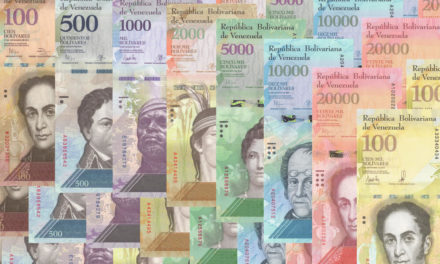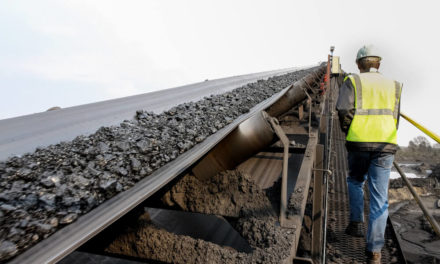Fourth Quarter Looking Good for Small, Independent Retailers
The latest retail sales report from the government augurs well for small and independent retailers for the fourth quarter, with one possible snag: the impact of trade tariffs.
Overall retail sales rose 6.4 percent in July from a year ago, and sales from non-store retailers, which include online merchants, soared nearly 9 percent, according to the Commerce Department.
Sales at stores that specialize in merchandise like clothing, electronics, furniture and home furnishings also had healthy gains, between 3.5 percent and 6.4 percent. Because small retailers tend to focus on one category of merchandise — for example, clothing or sporting goods — the solid numbers in the report portended especially well for them.
With the end of the year the busiest time of year for many retailers, consumers’ willingness to spend freely during the summer is cause for optimism.
The National Retail Federation, the trade group that represents retailers of all sizes, was equally upbeat about the July numbers. At the same time, the NRF was wary about the possibility that trade tariffs imposed by the U.S. against China, Canada, Mexico, India, Turkey and European countries and those nation’s retaliatory taxes would in time hurt consumer spending.
The Trump administration has already imposed tariffs of up to 25 percent on steel and aluminum imports and thousands of other items, and it is threatening tariffs on more goods, including Christmas lights, handbags, hats and furniture. Many importers and retailers expect to have to pass the higher prices on to consumers.
Retaliatory tariffs also raise fears that U.S. manufacturers won’t be able to sell as much of their exports overseas, hurting their revenue.
Still, with the national unemployment rate at 3.9 percent, many consumers are upbeat because they’re working and because the labor market is in their favor. The Commerce Department said restaurant and bar sales were up nearly 10 percent from a year ago; when consumers are eating out, they’re feeling good about their finances and spending.
Conoco Says Venezuela Will Pay $2 billion Arbitration Award
U.S. oil giant ConocoPhillips says it has reached an agreement with Venezuela*s state-owned oil company to recover nearly $2 billion it was awarded as part of a decade-old expropriation dispute.
Monday’s statement from Houston-based Conoco says that PDVSA has agreed to recognize the judgement by an international arbitration panel and will make the first $500 million payment within 90 days and the rest over a period of some four years.
In exchange, Conoco will suspend legal actions to seize PDVSA’s facilities in the Dutch Antilles that had threatened to disrupt Venezuela*s already-depressed oil exports at a time of widespread shortages and hyperinflation.
PDVSA hasn’t commented comment.
The award is equivalent to more than 20 percent of cast-strapped Venezuela*s foreign currency reserves.
Jury Awards More Than $242M for Lexus Seat Defects
A Texas jury has awarded more than $242 million to a Dallas-area family who sued Toyota over what they said were defective front seats in their Lexus sedan.
Benjamin and Kristi Reavis alleged defects caused their front seat backs in a September 2016 rear-end collision to collapse on their two young children seated in child safety seats in the back. Their attorney said the 5-year-old daughter and 3-year-old son suffered severe head trauma and other injuries.
The Reavises’ attorney, Frank Branson, said Toyota consciously chose to protect front-seat occupants from crash injuries such as whiplash at the expense of rear-seat passengers.
The Dallas County jury determined Friday that the seats were unreasonably dangerous and Toyota failed to warn of those dangers.
In a statement, Toyota said it sympathized with the Reavises and respects the jury’s decision but believes the injuries resulted from factors specific to the collision, not defects. No decision has been made on an appeal.
AbbVie Donates $100M to Ronald McDonald House Charities
Drugmaker AbbVie is donating $100 million to Ronald McDonald House Charities, which help provide housing to pediatric patients and their families throughout the U.S.
The donation announced Monday is the single largest ever gift to Chicago-based charity network. The money will be used to build housing in at least 26 states and at 32 Ronald McDonald Houses.
The network says more than 600 sleeping rooms are being added that will allow for 230,000 additional night stays by families wanting to stay close to children undergoing hospital treatment. Some money also will go toward family expenses such as food, laundry services, parking, as well as toward the construction of classrooms and playrooms.
North Chicago-based AbbVie makes the arthritis treatment Humira, which is the world’s biggest-selling drug by revenue.
Trump Says He ‘Won’t Let’ Social Media Target Conservatives
President Donald Trump is accusing social media companies of “totally discriminating against Republican/Conservative voices” and says “we won’t let that happen.”
Trump’s Saturday morning tweets come as companies have been working to ban right-wing “Infowars” conspiracy theorist Alex Jones from their platforms.
Apple, YouTube and Spotify have permanently removed some of his content, Facebook has suspended him for 30 days and removed some of his pages, while Twitter has given Jones a weeklong timeout and is mulling deeper changes to try to limit the spread of fake news, misinformation and hate speech.
Trump did not mention Jones by name in his tweets, which complained that, “Too many voices are being destroyed, some good & some bad.”
Trump appeared on Jones’ program during the 2016 campaign and praised his “amazing” reputation.
US Steel to Invest $750M in Gary Works Plant in Indiana
U.S. Steel plans to spend at least $750 million to upgrade a century-old steel mill along northwestern Indiana’s Lake Michigan shoreline.
Company and government officials said Thursday that the project will help preserve Gary Works’ nearly 3,900 steelworker jobs, and could help ensure the 112-year-old mill lasts another century.
The investment accounts for more than a third of U.S. Steel’s $2 billion asset revitalization program. The company had been criticized for not spending enough on equipment at mills such as Gary Works during the steel industry’s recent downturn. The lack of funding crippled the company’s production when the industry began rebounding, causing U.S. Steel to lose money.
Indiana is rewarding the company for its investment by giving up to $12 million in incentives, including tax breaks and worker training grants.
© The Associated Press. All rights reserved.




